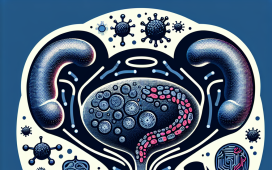Climate change is a serious threat to human health. It is already causing more extreme weather events, such as heat waves, floods, and droughts. These events can lead to injuries, death, and displacement. Climate change is also causing the spread of diseases, such as malaria and dengue fever.
In addition to these direct effects, climate change is also having an impact on mental health. People who are exposed to extreme weather events or who are displaced from their homes are more likely to experience anxiety, depression, and post-traumatic stress disorder.
The health impacts of climate change are disproportionately felt by the most vulnerable populations, including children, the elderly, and people with chronic health conditions. These populations are less able to cope with the effects of climate change and are more likely to experience health problems.
There are a number of things that can be done to mitigate the health impacts of climate change. These include:
- Reducing greenhouse gas emissions: This is the most important step to take to address climate change. We can reduce greenhouse gas emissions by switching to renewable energy sources, improving energy efficiency, and reducing deforestation.
- Adapting to the impacts of climate change: We need to adapt to the impacts of climate change that are already happening. This includes building infrastructure that is resilient to extreme weather events, developing early warning systems for natural disasters, and improving access to healthcare for people who are affected by climate change.
- Investing in research: We need to invest in research to better understand the health impacts of climate change and to develop new ways to mitigate and adapt to these impacts.
Climate change is a serious threat to human health, but it is a challenge that we can overcome. By taking action now, we can protect ourselves and future generations from the health impacts of climate change.
Here are some additional things you can do to help mitigate the health impacts of climate change:
- Reduce your carbon footprint: This includes driving less, using less energy, and eating less meat.
- Support policies that address climate change: This includes voting for candidates who support climate action and contacting your representatives to let them know that you care about climate change.
- Get involved in your community: There are many ways to get involved in the fight against climate change, such as volunteering for an environmental organization or attending a climate change rally.
- Educate yourself and others about climate change: The more people who understand the threat of climate change, the more likely we are to take action to address it.
By taking these steps, we can help to protect our health and the health of our planet.








